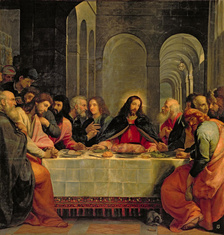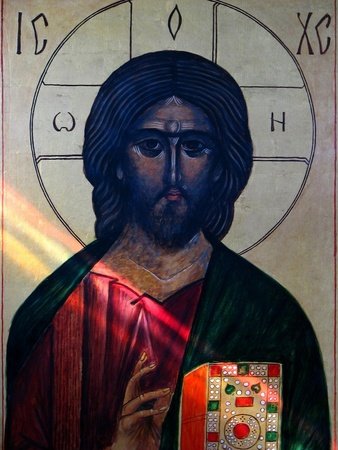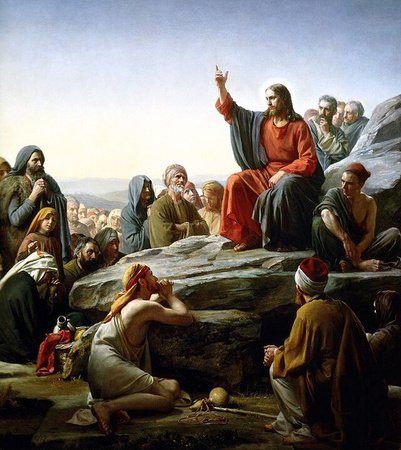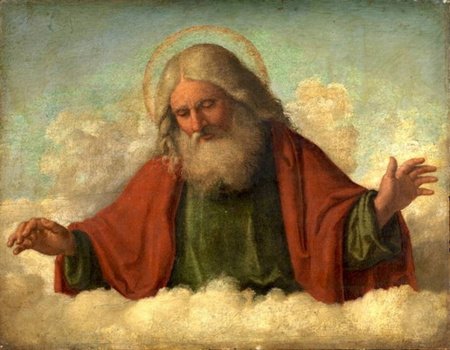
The religion of Christianity
First published: Saturday March 30th, 2024
Report this blog
The founder: Jesus of Nazareth
Christianity has a historical founder whose existence is verified by outside sources. The most reliable of these sources is the account from Josephus, a first-century Jewish historian born in Jerusalem, who eventually became a Roman citizen. In his work, antiquities of the jews, he makes several brief references to Jesus, both as a Messiah and as a wise teacher. Josephus also records that Jesus was crucified, and that his followers believed he was restored to life. Beyond that, however, history is silent.
The most information about Jesus is recorded in four books of the Bible: Matthew, Mark, Luke, and John. It is important to note here, however, that these books were not written as biographies; their purpose rather was to persuade others that Jesus was the son of God and the savior of the world. Thus, they describe the life and ministry of Jesus as the one they believed was God in the flesh. In other words, what we have in these four books of the Bible is an account of Jesus the Christ—that is, “the anointed one” or “the chosen one”—not a history of Jesus the man from Nazareth.

What do christians believe about Jesus
First and foremost, Christians believe that Jesus is both fully human and fully divine: the technical formula is “one person, two natures.” Christians believe Jesus was neither just another enlightened teacher on the one hand, nor a divine avatar on the other—God in a human disguise. Instead, in all his words and deeds, Jesus was both fully and completely divine and also a real, embodied human being. The language Christians use to describe this is “incarnation.” That is, Christians believe God became “incarnate”—literally, “in-fleshed”—in one human being, Jesus of Nazareth, son of a young woman named Mary, and her husband, Joseph.
Second, in Jesus, Christians believe they have the clearest expression of God’s core nature, and how God wants to be in relationship with humanity and the world. This is why Jesus’ life—his ministry, his friends, his disciples—all are crucial to a Christian understanding of God. Christians believe that the fundamental disposition of God toward creation is love, and that everything God does in the world is meant to manifest that love. In his person and in every act of his human life, Jesus is thought to embody that love.
Another point needs to be mentioned here as it relates to Jesus’ life and ministry, and that is that Jesus was very transgressive, repeatedly violating social norms and “queering” traditional notions of power and social status. He did not align himself with the Pharisees, the Jewish authorities of the time; indeed, they received regular and repeated chastising from Jesus for their emphasis on rules over people. Instead, Jesus surrounded himself with tax collectors, prostitutes, and other questionable members of society, welcoming children onto his lap, healing lepers, and conversing with strange women. Over and over again, Jesus aligned himself with outsiders: with the poor and the polluted, the underprivileged, and the unwanted.

The Holy Bible
Like the followers of many religions, Christians have a sacred text, the Bible, which is a compilation of many smaller texts written by many authors, only some of whose identities are known. The Bible is often described by Christians as being “inspired,” although that word has been interpreted in different ways. While some Christians believe that the Bible should be read literally, even as regards matters of science and history, mainline Christians believe that the Bible was not written as a science textbook, biography, or historical account, but instead, as witness to the one God who revealed Godself in history in a covenantal relationship first with the Jewish people, and then, through Jesus Christ, to the whole world. This leaves open the possibility for harmonizing the Christian story with new discoveries in geology, anthropology, history, astronomy, etc., etc.
The Christian Bible is divided into two major sections, which traditionally have been called the Old Testament and the New Testament. The number of books in the Bible varies among different Christian denominations, but the two main divisions are between the Catholic Bible, which has seventy-three books, and the Protestant Bible, which has a total of sixty-six books.

God
Creation is the act by which the Bible introduces to God. It is an act of God alone, by which, for his own glory, he brings into existence everything in the universe, things that had no existence prior to his creative word. In creation, we see God’s lordship on display in his control over all things, his authority over all the universe, and his presence in every part of creation. The doctrine of creation should elicit praise from all of his creatures and offers significant parallels to our redemption as well. While significant questions are still disputed, such as the nature of the six days of creation, the age of the earth, and the validity of evolution, Genesis is clear that God alone can take the credit for the creation and continual upholding of all things that exist.
When Scripture first introduces us to God in Genesis 1:1, it presents us not with a definition of God or a list of attributes but an act: “In the beginning, God created the heavens and the earth.” That act nevertheless tells us much about who God is and how he is different from the world he has made. Indeed, this verse presents us with the biblical worldview in a nutshell: Reality is twofold. Everything must be understood within the context of a distinction between Creator and creature.
Therefore, it is misleading to understand the world, as did the Greek philosophers, as “Being” in general. There are two distinct realities, and they cannot be mixed together or confused with one another. All of our knowledge about the world is qualified by this distinction. There is divine being and created being, different in their attributes, powers, actions, rights and obligations.
The term creation applies both (1) to God’s original act of bringing being out of nothing (ex nihilo) (Gen. 1:1) and (2) to God’s subsequent actions bringing structure to created being (Gen. 1:2–2:3). These two phases are sometimes called original and subsequentcreation. A good definition of creation, therefore, will embrace both of these: Creation is an act of God alone, by which, for his own glory, he brings into existence everything in the universe, things that had no existence prior to his creative word. Some have defined creation as “the continual dependence of everything on God,” but such definitions fail to anchor the concept as Scripture does in the events of Genesis 1. Of course, creation is indeed continually dependent on God, but this fact is best discussed under the headings of providence, preservation, and concurrence.
What follows are some of the main contexts in which Scripture speaks of creation. These shall introduce additional clarifications into the concept.

